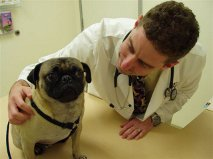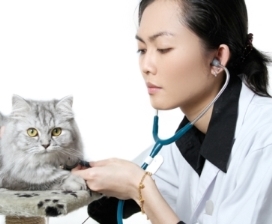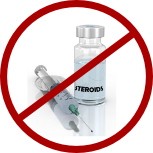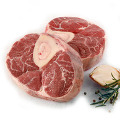 To ensure optimal health for our dogs and cats, we ought to consider many factors.
To ensure optimal health for our dogs and cats, we ought to consider many factors.
- Nutrition
- Environment
- Social relationships
- Exercise
- Natural remedies
Often, though, when people have questions about their pet’s health, they look to their veterinarian, and sometimes the advice they receive can be narrowly focused, specified to that doctor’s particular area of knowledge and their beliefs.
Veterinary Training

There is no doubt that students entering veterinary school have a deep love of animals. Because of this, we hope not to offend. The fact remains, however, that, in years past, veterinary training lacked sufficient information about nutrition.
If nutrition was taught in the curriculum, it was usually a quick course taught by a representative of one of the big pet food conglomerates, which have become larger due to mergers. Unfortunately for animals, the big pet food companies have been the primary sponsors of most veterinary school programs. Consequently, many veterinarians left vet school confident that dogs and cats ought to be fed a good commercial pet food – good meaning one manufactured by their vet school’s sponsor.
These veterinarians were well trained in diagnosis of disease, and of drug and surgical remedies. But the schools failed to teach their students that most of the common dog and cat diseases seen today were not seen in these animals’ ancestors. And that their diets were the reason, because dogs and cats in the wild evolved over many millions of years on a diet very different from that which is taken from the cans and bags on supermarket shelves today. You’ll notice when you walk into most veterinary clinics a large stack of commercial pet food on display somewhere prominent. These foods are not made from high quality ingredients, even if they are “prescription” products.
 Many concerned veterinarians began to realize that the techniques they learned in school did not work as well as expected on day-to-day problems brought to them. Often taking one’s pet to the vet didn’t seem to accomplish anything. Worse, often steroids were prescribed. These steroids usually succeeded at masking symptoms, placating as a “cure,” but they left the underlying problem to fester. Worse, the steroids often had crippling side effects, if used in excess.
Many concerned veterinarians began to realize that the techniques they learned in school did not work as well as expected on day-to-day problems brought to them. Often taking one’s pet to the vet didn’t seem to accomplish anything. Worse, often steroids were prescribed. These steroids usually succeeded at masking symptoms, placating as a “cure,” but they left the underlying problem to fester. Worse, the steroids often had crippling side effects, if used in excess.
Observant doctors began to ask themselves questions like these:
- Why do some pets get better easily, while others, on the same treatments, never do?

- Why do some pets catch all the parasites and diseases, and others don’t?
The answer is simple but logical. It’s the same in human medicine. When an animal is healthy, its body fights off disease. When we are in good health, our immune system is better equipped to overcome the germs, viruses, cancers, and other ailments that our bodies are constantly faced with.
Problems with conventional veterinary medicine:
- Knowledge is fragmented.
- Specialists each look at a particular disease in a particular way, with little attempt to reconcile discrepancies between their conclusions and those of others.
- Nutrition is of primary importance.

- Nutrition has been mostly overlooked in veterinary school.
- Certain vitamins are essential to the normal functioning of the immune system.
- Proper nutrition can boost the body’s resistance to disease.
- Vet schools are sponsored by large pet food manufacturers, causing an unhealthy bias toward promoting their commercial foods through the veterinarian.
There is clearly a need for a holistic approach, and proper nutrition is the essential foundation of holistic health and healing.

In addition, conventional veterinary medicine is heavily entrenched in the practice of pushing vaccinations, antibiotics, and corticosteroids. Veterinarians who have studied immunology believe that vaccines have done a great deal of harm, and that over-vaccinating is high on the list of reasons why so many diseases have both appeared in our pets in recent years and proliferated at such a high rate. There are many articles on this subject, including this one, hyperlinked, from dogs naturally magazine. Dr. Jean Dodds, a world-renowned expert in the field, states that vaccinations “are increasingly recognized contributors to immune-mediated blood diseases, bone marrow failure, and organ dysfunction.”
 Overuse of corticosteroids and antibiotics are just as bad. Corticosteroids will mask symptoms of degenerative diseases. While the symptoms are masked, the underlying illness progresses, and the steroids, themselves, can cause crippling effects.
Overuse of corticosteroids and antibiotics are just as bad. Corticosteroids will mask symptoms of degenerative diseases. While the symptoms are masked, the underlying illness progresses, and the steroids, themselves, can cause crippling effects.
Antibiotics have their place in medicine, and we are very grateful for that place, but they are often prescribed when there is no infection. Overuse weakens the immune system, and a healthy immune system is vital to preventing almost all kinds of disease.
Alternatives
- There are alternatives to these conventional practices.
- Try to avoid unnecessary vaccinations.
 Talk to a holistic veterinarian who has taken the time to study immunology. Ask him or her about nosodes, titers, and naturopathic prevention.
Talk to a holistic veterinarian who has taken the time to study immunology. Ask him or her about nosodes, titers, and naturopathic prevention.- Don’t use antibiotics unless they are indicated for your pet’s infection.
- Ask questions until you understand.
- Be wary of using corticosteroids as a substitute for getting to the root of the problem, and always get a second opinion from a holistic veterinarian. Remember, holistic simply means looking at the system as a whole, and not just focusing on a symptom.

- Above all, keep your pet healthy from day one with a natural, well-balanced diet made from quality ingredients.
See the Infections page for information on boosting your pet’s immune system.